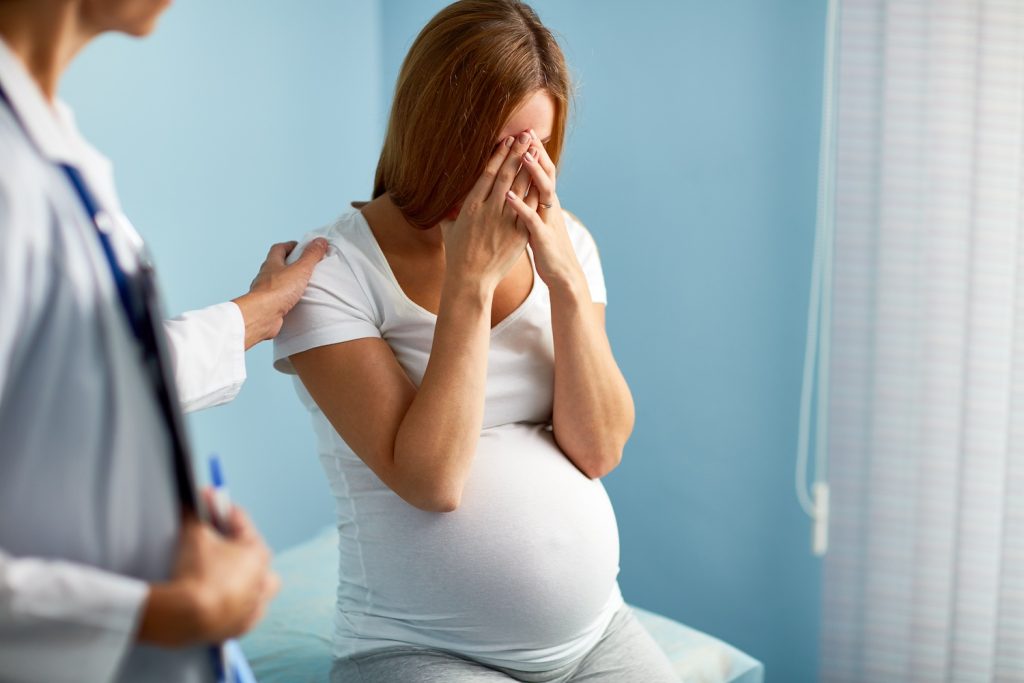
The Foundation of Well-Being: Exploring the Importance of Good Mental Health
April 16, 2024
Navigating the Journey: How to Cope with Postpartum Depression
April 22, 2024Pregnancy is often portrayed as a time of joy and anticipation, but for some expectant mothers, it can be accompanied by feelings of sadness, anxiety, and despair. Prenatal depression, a form of depression that occurs during pregnancy, is a significant but often overlooked mental health concern. In this blog, we’ll explore what prenatal depression is, its signs and symptoms, and available treatment options.

What is prenatal depression?
Prenatal depression, also known as antenatal depression, is a type of mood disorder that affects expectant mothers during pregnancy. It’s characterized by persistent sadness, hopelessness, and despair that interfere with daily functioning and overall well-being. Prenatal depression can occur at any time during pregnancy, and its causes are multifaceted, including hormonal changes, psychological factors, and external stressors.
Signs of prenatal depression
Recognizing the signs of prenatal depression is essential for early intervention and support. Some common symptoms include:
- Persistent sadness or feelings of emptiness
- Loss of interest or pleasure in activities
- Changes in appetite or weight
- Fatigue or loss of energy
- Difficulty concentrating or making decisions
- Excessive worry or anxiety about the pregnancy or future
- Sleep disturbances, such as insomnia or excessive sleepiness
- Irritability or anger outbursts
- Withdrawal from social activities or relationships
- Thoughts of self-harm or suicide
It’s important to note that experiencing some of these symptoms occasionally during pregnancy is normal. If they persist and significantly impact daily life, it may indicate prenatal depression and warrant professional evaluation and support.
Prenatal Depression Treatment
Treating prenatal depression involves a comprehensive approach that addresses both the physical and emotional well-being of the expectant mother. Here are some standard treatment options:
- Psychotherapy: Counseling or therapy sessions with a trained mental health professional can provide a supportive space for expectant mothers to explore their feelings, learn coping strategies, and develop healthy ways of managing stress and anxiety.
- Medication: In some cases, healthcare providers may prescribe antidepressant medications to help alleviate symptoms of prenatal depression. However, the decision to take medication during pregnancy should be carefully weighed with potential risks and benefits and closely monitored by a healthcare provider.
- Support groups: Participating in support groups for expectant mothers or individuals experiencing prenatal depression can offer a sense of community, validation, and encouragement. Connecting with others who share similar experiences can reduce isolation and provide valuable emotional support.
- Lifestyle modifications: Engaging in self-care activities such as exercise, relaxation techniques, and balanced eating habits can help improve mood and overall well-being during pregnancy. Setting realistic expectations, delegating tasks, and seeking practical support from family and friends can also alleviate stress and anxiety.
- Partner and family support: Building a strong support network that includes partners, family members, and friends is crucial for expectant mothers experiencing prenatal depression. Open communication, empathy, and practical assistance can make a significant difference in coping with depression during pregnancy.
It’s essential for expectant mothers experiencing symptoms of prenatal depression to seek professional help and support from healthcare providers, mental health professionals, and loved ones. Early intervention and treatment can help alleviate symptoms, reduce the risk of complications, and promote a healthier pregnancy and postpartum period.
Prenatal depression is a significant mental health concern that affects many expectant mothers during pregnancy. By recognizing the signs and symptoms, seeking timely support and treatment, and fostering a supportive environment, we can help ensure the well-being of expectant mothers and promote healthier outcomes for both mother and child.
_________________________________________________________________________________
Looking for treatment for an eating disorder, anxiety, depression, trauma, or postpartum mood disorder?
Evolve Counseling Services is a specialized team of Licensed Therapists providing treatment in Paoli.



